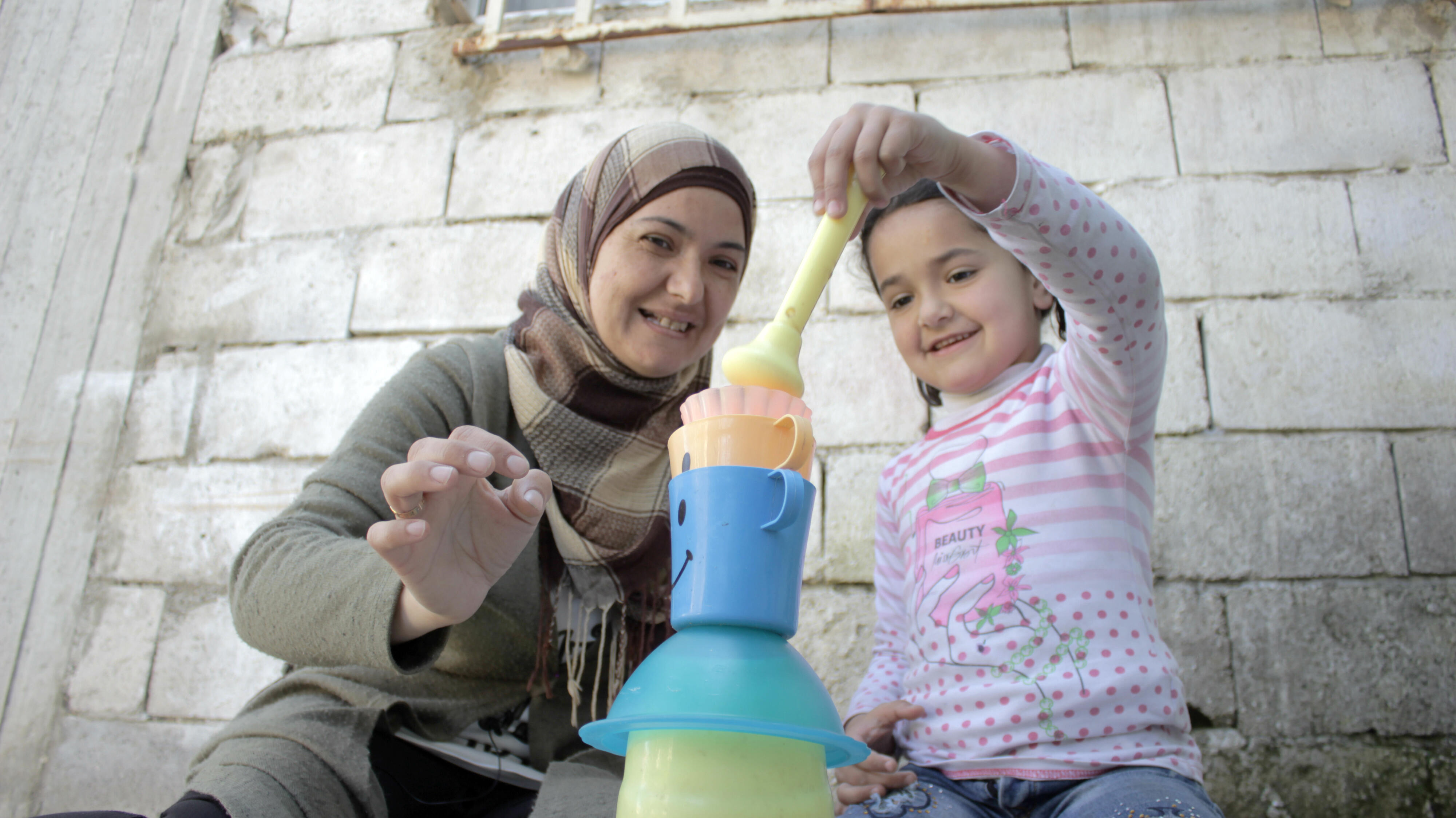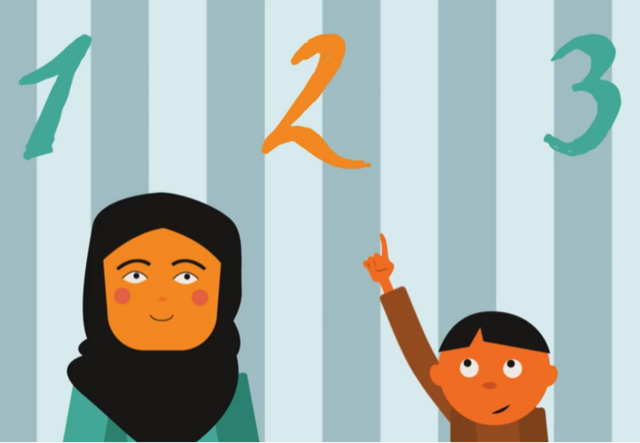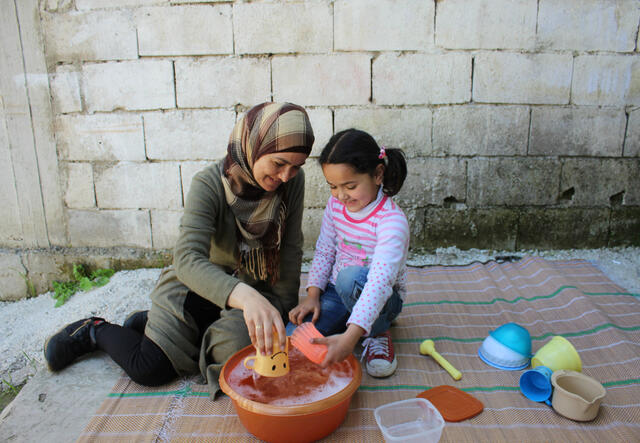
The IRC partners with Vroom to nurture refugee children
New technology helps Syrian refugee parents in Lebanon and Jordan “build the brains” of their youngest children.

New technology helps Syrian refugee parents in Lebanon and Jordan “build the brains” of their youngest children.
Five years ago, as the war in Syria intensified, Ahlam Mohammad Issber fled to Lebanon with her children. “I was ready at a moment’s notice to put my three children in the middle of the floor and lay myself over them,” she recalls. “My middle child is very kind-hearted. He told me, ‘Mama, I’m not going to let you die. I want to die before you.’ That really affected me. I felt as if I had to do something for him; to take him out of those hard times we were living in.”
Ahlam’s decision was made more difficult because her husband did not want to leave Syria. “We didn’t know our nights from our days,” she says. “We felt that at any moment we would die. I had to choose between my husband and my children. I chose my children.”
Ahlam now lives in Akkar, a district in northern Lebanon. She is the sole provider for her family, and the stress of finding work and caring for her children at times seems overwhelming. “All three of my children are young,” she says. “I would leave them and go to work, and I would come back and feel a fire burning inside me…because I felt I had deprived them of my presence. The moment I came home, my son would open the door, and he would tell me, ‘Mama, God help whoever has lost their mother.’”
Ahlam worried that her limited time with her children was stunting their development. Like most parents, she understood the importance of early childhood education, but for refugees, even the simple act of preparing your children for school can be daunting—more so when they are sole providers.

In response to this widespread problem, the International Rescue Committee has partnered with Vroom, an innovative group of educators, scientists and community leaders dedicated to providing busy caregivers with tools to boost early learning in children. Using videos and animation delivered through WhatsApp and Facebook, Vroom puts the latest childhood development techniques into the hands of parents in the form of fun games and easy-to-follow tips and advice.
“We were inspired by Vroom’s approach—empowering caregivers with practical, brain-building activities that can be integrated into daily life—and saw the great potential for reaching large numbers of families living in displacement,” says Katie Murphy, an IRC early childhood development specialist. Mobile technology and connectivity have become increasingly accessible, opening the door to new opportunities for parents to nurture young children.
When IRC staffers introduced Ahlam to Vroom’s content platform, she saw immediately how she might turn simple tasks into brain-building moments for her daughter Sadal, five years old at the time. Vroom posts activities such as “Sock Sorters,” in which mothers have their children help them sort socks while doing laundry, matching them by size, color or other criteria. The exercise and ensuing conversations are easy ways to nurture a child’s growing mind.
“The Vroom activities were helpful for both me and my daughter,” says Ahlam. “The activities gave me nice ideas to work with. For Sadal, they strengthened her personality, and she loved doing them. She does the activities with her friends now.”

Bringing Vroom to families affected by the Syrian crisis is not a simple issue of translation, notes the IRC’s Murphy. “We had to test various Arabic dialects, adapt the content for the cultural context, and decide which mediums and channels can best reach, engage and motivate parents,” she says. The IRC believes the content platform will bolster a new generation of displaced people working to rebuild their lives.
“I found that my way of thinking had changed,” says Ahlam about Vroom. “I was thinking of things I had never thought of before. Even the activity where I told my daughter to stack objects—it never occurred to me that I might do this with my child. I really enjoyed it. And, oh, how my daughter laughed during this activity. It was really nice.”
The IRC is looking for donors to help scale this program and reach more refugee parents and caregivers. Read the IRC’s full report on this pilot.